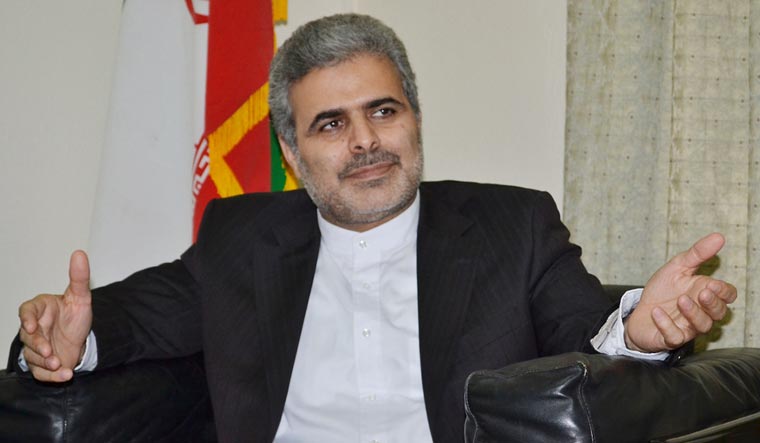The sanctions imposed by the United States on Tehran is an act of economic terrorism, which is worse than the Pulwama attacks, said Iran's ambassador to India Ali Chegeni. He was addressing a seminar on growing US-Iran tensions, organised by the Institute of Social Sciences in New Delhi. Chegeni said that the US had made lofty claims that food and medicines were not under the ambit of the sanctions, but when the banking system was under sanctions, it affected everything. “It affected the poorest patient in the hospital, and that was the worst form of terrorism.”
Speaking about Washington walking away from the Joint Comprehensive Plan of Action (JCPOA) or Iran nuclear deal, the envoy said that the US had shown it was not a reliable country for negotiations. “Iran is always willing for negotiation, we sat across the negotiating table for 12 years before the JCPOA was ready. And the first country to sign it was the US. It was also ratified by the United Nations Security Council. How can one American president sign it and the next one say that it is no deal. This is an insult. What is there to negotiate now?” he said, asking what is the reassurance that whatever negotiations were held now would be accepted by a later president, too.
However, reemphasising Iran's willingness to always be agreeable to negotiations, he said that Iran's foreign minister Javad Zarif had gone to Biarritz, where the G-7 meeting is on. He went at the invitation of French President Emmanuel Macron, the envoy said, hinting that some outcome could be expected from this meeting that Macron might have some proposal for Iran. Acknowledging the changing global realities, the ambassador said that Iran didn't want any enmity with the US either. “The world is getting multipolar, we do not want enmity with the US, we can have good relations. But that is only if they respect Iranian dignity and not call us a terrorist nation.”
He defended his country's relations with Syria, saying that Iran had gone to the country at the request of the government in Damascus. “We went to Syria through their airport, and will remain there as long as Syria wants us to help them reconstruct. We did the same in Iraq, too,” he asserted.
India's investments in Chabahar port, Chegeni said, now need to be scaled up from the passage of ships between Mumbai and Chabahar. India has built a terminal in the port, which is of strategic importance to India as it opens up easy access to Central Asia and Afghanistan. Chegeni said that once the rest of the connectivity was in place, Chabahar would actually become the Golden Gate for India, as Prime Minister Narendra Modi had once called it.
“It is the key in connecting India with the Mediterranean and Europe. From here, you can reach Central Asia in eight hours by train, Afghanistan in four hours and Istanbul in 24 hours. It can also be connected with the train service between Shanghai and the Caspian Sea. In fact, India could reach Shanghai quicker this way—16 hours—than through the eastern sea route,” he said.
The envoy, however, regretted that progress had slowed down considerably since the sanctions were imposed. He pointed out that the terminal was just one aspect of the Chabahar project, which actually stretched from Hormuz to the Pakistan border and was being developed as a free trade zone. It offers immense opportunity for investments. “I believe that Indian companies should invest here soon because it might be too late tomorrow,” he said.



